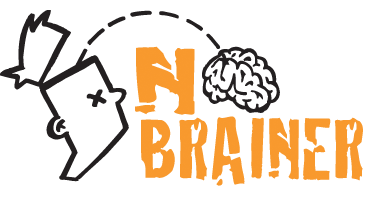Don’t Let New Zealand Go To Pot
 Media Release 9 January 2016
Media Release 9 January 2016
Family First NZ is rejecting calls by former trade union boss Helen Kelly for marijuana to be legalised, labelling the idea as dopey and dangerous.
However, Family First is sympathetic to the health concerns that Helen Kelly is facing and is supporting further quality research into the components of the marijuana plant for delivery via non-smoked forms and responding to individuals with serious medical conditions where traditional methods have failed.
“Contrary to the marketing of dope by drug advocates, the grass is not always greener. New Zealanders need to be aware of the smoke-screen of ‘medicinal marijuana’. The strategy of groups who want dope legalised is to promote medicinal marijuana which simply manipulates society’s compassion for people with serious pain and health concerns. But marijuana will then be diverted from medical programs to ‘recreational’ purposes,” says Bob McCoskrie, National Director.
“Scientists have used the marijuana plant’s primary active ingredient – THC – as a pill form for nausea and appetite stimulation. It may be that there can be the development of non-smoked rapid-onset cannabinoid delivery systems. But this should be decided on the basis of thorough clinical trials, as recommended by the US Institute of Medicine.[1] We support the NZ government’s caution around this issue, but we also support a compassionate response to those in real need.”
“We certainly don’t want to go down the Green’s road either. Their medicinal cannabis bill in 2009 – which was soundly defeated – allowed for teenagers to cultivate and smoke cannabis with parental permission, created dope ‘pimps’, and appointed police to be the ‘dealers’. It also deemed medicinal purposes to include depression and mental illness, eating disorders, and schizophrenia, despite research suggesting that marijuana actually exacerbates these conditions,” says Mr McCoskrie.
“Supporters of decriminalisation would have us believe that cannabis is a gentle, harmless substance that gives users little more than a sense of mellow euphoria and hurts no one else. But the cannabis now in circulation is many times more powerful than that typically found in the early 1990s, with up to a 25-fold increase in the amount of the main psychoactive ingredient, tetrahydrocannabidinol (THC). Naturally, growers want to sell marijuana with increased potency because it’s more addictive. With increased potency comes increased health risks, and greater likelihood of addiction.”
“Decriminalising marijuana is the wrong path if we care about public health and public safety, and about our young people,” says Mr McCoskrie.
Family First is calling for the following:
- the expansion of research into the components of the marijuana plant for delivery via non-smoked forms (Supported by NZMA)
- the establishment of an emergency or research program that allows seriously ill patients to obtain non-smoked components of marijuana before final Ministry of Health approval
- the Government instruct the Ministry of Health to update the prescribing guidelines for pharmaceutically based THC derivative medicines to include Sativex as a medicine under the Medicines Act 1981 and to continue to make pharmaceutically based THC derivative medicines available to treat serious medical conditions when traditional methods have failed.
Further Commentary: Don’t Let NZ Go To Pot
Published in the Dominion Post May 2014 http://www.stuff.co.nz/dominion-post/comment/columnists/10041872/Marijuana-use-damaging-to-health
ENDS
[1] Joy JE et al., Marijuana and Medicine: Assessing the Science Base. Division of Neuroscience and Behavioral Health. Institute of Medicine. Washington DC, National Academy Press, 1999,






